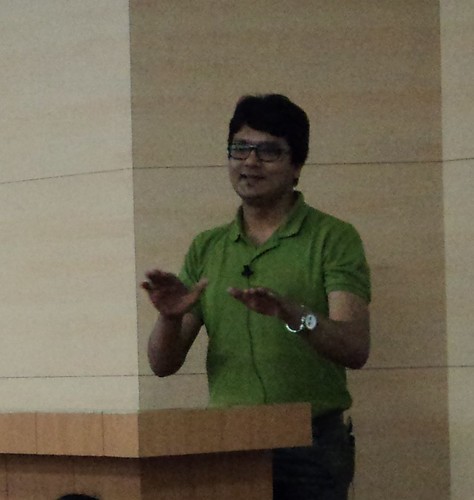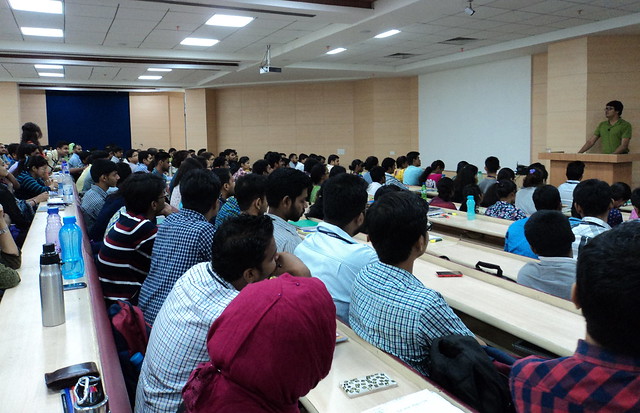By TCN News,
New Delhi: Aaghaz-e-Dosti, a joint Indo-Pak Friendship Initiative of Mission Bhartiyam (India) and The Catalyst-Tc (Pakistan) conducted its 14th Aman Chaupal here on Thursday.
The guest of this time’s Aman Chaupal was an art activist from Pakistan, Shoaib Iqbal. The event was held at the Alternative Learning Systems (ALS), a renowned coaching centre for civil service aspirants in Delhi. Aman Chaupal is a short informal session wherein someone from Pakistan addresses students’ questions and curiosities in an Indian school or college (or vice versa). It is an interactive session based entirely on students’ questions.

Shoaib Iqbal
Iqbal is the director/ founder of ‘The Little Art’, a Lahore-based non-profit arts organization that uses the medium of art to empower children and youth, especially youth hailing from socially, economically and ethnically marginalized sections and inculcate positive values through it. Iqbal had received ‘Endeavour Executive Award’ from Australian government and was a Commonwealth Fellow, a release from Devika Mittal, convenor of Aaghaz-e-Dosti, India, said.
Iqbal addressed about 600 students where he began by sharing his personal experiences. He told the students that his grandparents had migrated from Ludhiana in Punjab. Despite seeing the insanity of partition-related violence, his grandparents and many others with similar experiences do not have hatred or the feeling of revenge. They have seen the worse and so never demand to repeat it.
After this, the interactive session began. There were questions around art in Pakistan, on the issues that Iqbal addressed through art, on secularism, popular culture, civil society and Indo-Pak issues, the release said.
A student asked about the popularity of Bollywood movies in Pakistan. Additionally, he asked about the reaction of Pakistanis on anti-Pakistani sentiment in the movies. To this, Iqbal replied that Bollywood movies and songs are very popular in Pakistan. “However, the movies that have an anti-Pakistani sentiment are not appreciated. They are a flop in Pakistan,” he added.
There was a question on the role of religion in Pakistani politics, to which he replied that religion has been a centre of politics in many countries and Pakistan is not an exception. “However, the major political parties in Pakistan do not have affiliation with any particular religion. They do not ask for votes in the name of religion.”
A student asked about the possibility of peace between India and Pakistan as he asked, “What do you think is the permanent solution? Is peace possible?” To this, Iqbal replied: “We have lived in the situation of conflict for so long that peace seems impossible now. However, the European countries serve as an example for this, for example, the enmity between France and Germany in the past and their reconciliation and friendship in contemporary times. Peace is the permanent solution between India and Pakistan.”

The image of Malala Yousafzai and her struggle for girls’ education was also touched upon. A student asked, “How is Malala and her movement for girls’ education seen in Pakistan?” He replied that Malala Yousafzai has a huge support. “She is the daughter of Pakistan. There is a small section that opposes and questions her, but the civil society, the majority in Pakistan stand by her and her issues.”
There was also a question on the language, wherein he said the language remains to be an important connect between India and Pakistan. “The spoken Hindi of India and spoken Urdu of Pakistan are the same. There are many languages in Pakistan. Punjabi, which is one of the most spoken languages in Pakistan, also remains to be an important connect,” he added.
This session was co-ordinated by Mittal and Madhavi Bansal of Aaghaz-e-Dosti, the release added.

